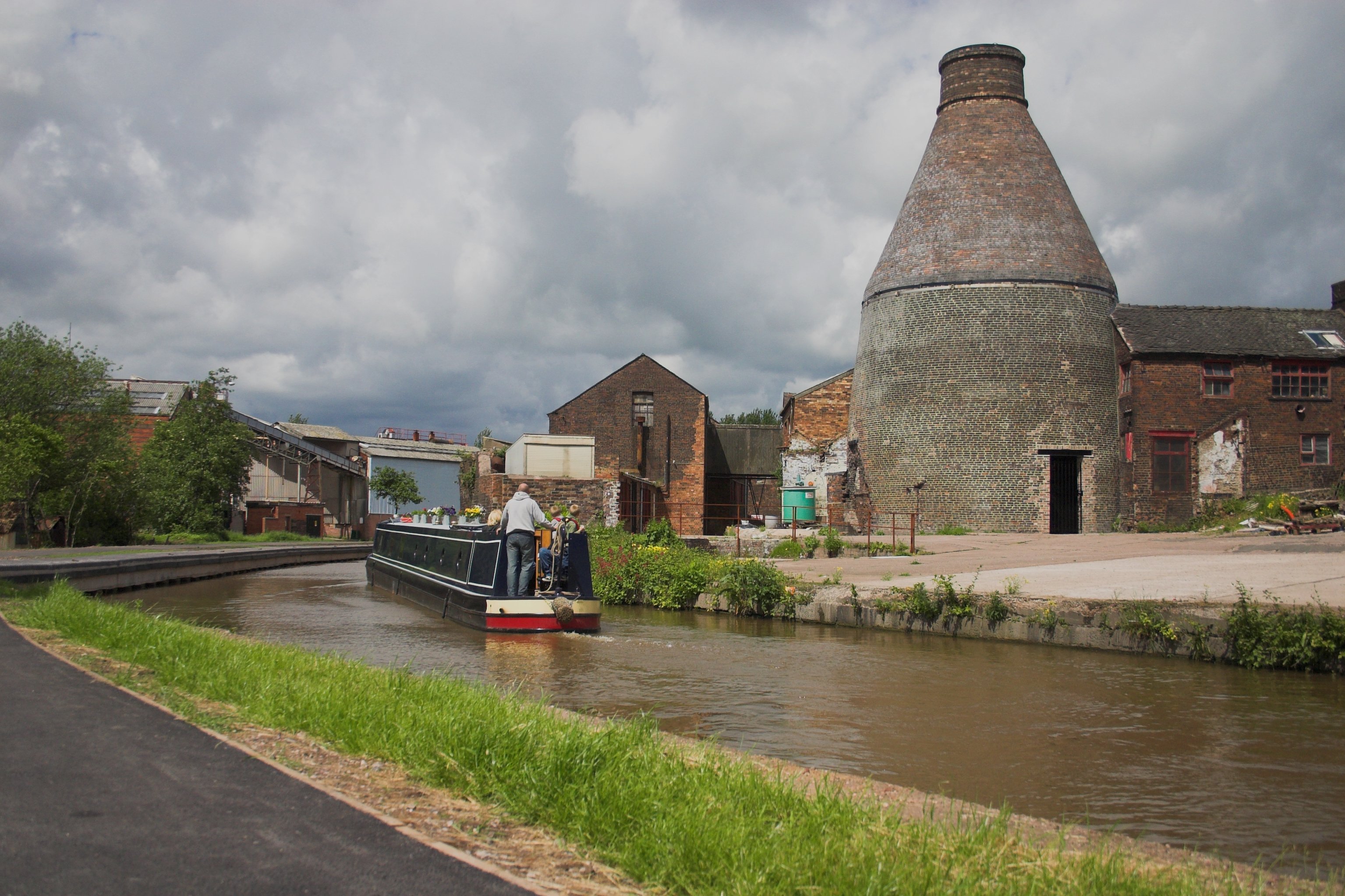Research by HR systems provider Ciphr has revealed the best UK towns and cities for people working in HR, and those considering a career in HR.
↓ Scroll down to find out which places rank the highest for salary, HR job opportunities, and affordability ↓
Top towns and cities in the UK for HR professionals
To discover where in the UK has the best job opportunities for HR and people management professionals, Ciphr examined employment data and local area information for 100 major towns and cities. Researchers compared a series of factors that people commonly consider when job hunting, relocating, or looking to change careers, such as average earnings, the number of medium and large employers in the area, and housing affordability.
There are, of course, many other job aspects that influence people's final decision-making – such as work-life balance, flexible working hours, access to good employee benefits and rewards, job security, job satisfaction, and learning and development opportunities. But, location is a good place to start.
Each location in Ciphr's study was ranked against each other across four metrics. Points were allocated based on where each town or city ranked between the highest and lowest values for each metric (for example, the place with the highest salary scored 100, while the location with the lowest salary scored 1). The town or city with the highest overall score out 500 (average HR salary salary was given a double-weighted score) was ranked first on the index.
Top 10 UK towns and cities for HR professionals:
Aberdeen, Northampton, London, Huddersfield, Slough, and Warwick are the best towns and cities for people living and working in HR, according to Ciphr's study. The top 10 also includes Manchester, Bournemouth, Stockton-on-Tees, and Reading.
1 | Aberdeen
Aberdeen scored consistently well across multiple criteria to top Ciphr’s list of best UK towns and cities for HR professionals to live and work.
The city boasts the second highest average HR manager salary of £50,450 (according to data compiled from job sites Indeed, Glassdoor and Adzuna) and has the fifth highest business density per capita. The number of medium and large businesses based in the area (with over 50 employees) is around 17.2 per 10,000 working-age adults. This is well above the UK average of 12.4, indicating that there is likely to be a good level of employment opportunities in the area.
Aberdeen is also in the top fifth of the study for housing affordability, with rent averaging around £786 a month – 19% of the city’s average HR manager's salary. While the average property costs £187,543 – around 3.7 times the average salary for HR managers.
- Average HR manager salary in Aberdeen: £50,450
- Number of businesses (with 50+ employees): 265
- Business density: 17.2 businesses (with 50+ employees) per 10,000 working age population
- Property price / salary multiple: £187,543 / 3.7
- Monthly rent / % of salary: £786 / 19%
2 | Northampton
HR managers working in Northampton can expect to earn around £42,850. This over a third higher than West Northamptonshire’s average full-time wage across all occupations of £31,776 (according to the Office of National Statistics’ most recent ‘employee earnings by workplace' figures).
The town’s business density is also above average, with 16.3 businesses (with over 50 employees) per 10,000 working-age adults, and 365 businesses (with 50+ employees) in total.
- Average HR manager salary in Northampton: £42,850
- Number of businesses (with 50+ employees): 365
- Business density: 16.3 businesses (with 50+ employees) per 10,000 working age population
- Property price / salary multiple: £298,787 / 7.0
- Monthly rent / % of salary: £750 / 21%
3 | London
London has by far the highest number of medium and large businesses (with over 50 employees) at 10,060, and also the eighth highest business density per capita.
While HR managers in London earn the third highest average salary in Ciphr's study, of £50,350, the UK capital is much less competitive in terms of housing affordability (ranking 95th). Typical homes cost an average of 14.5 times earnings (at £731,178) and over a third of wages goes on rent (around £1,475 per month on average).
- Average HR manager salary in London: £50,350
- Number of businesses (with 50+ employees): 10,060
- Business density: 16.6 businesses (with 50+ employees) per 10,000 working age population
- Property price / salary multiple: £731,178 / 14.5
- Monthly rent / % of salary: £1,475 / 35%
Top 30 UK towns and cities for HR and people management professionals
Key for pop-up:
- HR manager salary = average annual salary for HR managers based in this location (salary data compiled from Indeed, Glassdoor and Adzuna, where available, on 3-6 March and 3-4 May 2023)
- Businesses (with 50+ employees) = number of medium and large VAT and/or PAYE based enterprises with over 50 employees (2022)
- Business density = number of VAT and/or PAYE based enterprises (with 50 employees or more) per 10,000 working age population (2022)
- Property price = average sold prices for all property types (based on Rightmove data as at 2 March 2023)
- Salary multiple = multiples of HR manager’s salary required to buy the average property in the city
- Monthly rent = median average monthly rental price (2022)
- % of salary = proportion of HR manager’s salary spent on rent
Top paying towns and cities for HR managers

Chichester: #1 for average HR manager salary
To find out which UK towns and cities pay HR managers the most money on average, Ciphr analysed salary data from three different job sites (Indeed, Glassdoor, and Adzuna in March and May 2023).
Which UK city pays HR managers the highest salary?
Chichester has the highest average salary for HR managers at £51,800 per year. This is 18% higher than the UK average of £44,050 and over £21,000 more than the city's average full-time wage of £30,298 (according to the latest 'employee earnings by workplace' figures from the Office of National Statistics).
The next highest paying city for human resources managers is Aberdeen, with an average salary of £50,450, followed by London, Guildford, and Bracknell.
- Chichester – £51,800 (vs the city's average full-time salary of £30,298)
- Oldham – £43,400 (vs £28,470)
- Blackpool – £40,600 (vs £27,004)
- Bury – £42,300 (vs £28,139)
- Newcastle-under-Lyme – £42,050 (vs £28,399)
HR managers working in Blackpool earn around 50% more than the city's average full-time worker's salary
Note: The average HR manager salaries (quoted above) were compiled from salary data listed on Indeed, Glassdoor and Adzuna, where available, between 3-6 March and 3-4 May 2023.

UK towns and cities with the most employers
Most organisations with around 50 employees typically tend to have at least one HR professional on staff. As an organisation grows, so too does the number of HR and people management professionals required to support the workforce. There is no one-size-fits-all rule when it comes to HR-to-employee ratios, as company size, budget and use of HR software can all impact the number of HR jobs that each employer requires. Generally, however, it follows that towns and cities that have a high number of medium and large businesses per capita are more likely to be able to provide more job opportunities to HR professionals, than towns and cities with a smaller number of employers.
Which cities have the most businesses with over 50 employees?
After London (10,060), Birmingham and Leeds have the most medium and large businesses (with over at 725 and 720 respectively.
When the figures are adjusted for working age population, however, it's Winchester that has the highest density of medium and large employers at 19.1. This means that there are over 19 businesses with over 50 employees for every 10,000 working age residents.
Slough and Harrogate have the next highest number at 17.9 and 17.8 per 10,000 respectively (the UK average is 12.4 per 10,000).
Which towns and cities have the highest density of large businesses per capita?
Slough has the highest density of large employers (with over 250 employees), with 4.8 per 10,000 working-age population. Wokingham, Milton Keynes, Bracknell, Solihull, Warwick, Reading, Cheltenham, and Newcastle upon Tyne all have over 4 per 10,000 (the UK average is 2.5 per 10,000).
Towns and cities with the highest density of medium and large employers
- Winchester (19.1)
- Slough (17.9)
- Harrogate (17.8)
- Warwick (17.3)
- Aberdeen (17.2)
- Milton Keynes (16.9)
- Norwich (16.8)
- London (16.6)
- Exeter (16.5)
- Northampton* (16.3)
*Figures shown are for West Northamptonshire

Most affordable cities for HR managers to buy or rent
The majority of UK towns and cities with the most affordable housing (to rent or buy on an average HR manager's salary) are located in the north of England – in Stockton-on-Tees, Stoke-on-Trent, Middlesbrough, Sunderland, and Blackpool. The average rental property costs around 14% of the average HR manager salary in Stockton, which is £44,650. While the average property costs £146,288 – 3.3x the average HR manager salary.
At the other end of the scale, housing is the least affordable to buy or rent (comparative to average HR manager salaries) in Sevenoaks in Kent, Bath (and North East Somerset), St Albans, Winchester, and London.
How much is the average property to buy in the UK?
The average UK property now costs £287,506 (as at February 2023), which is 6.5x the average HR manager salary of £44,050 (calculated using data from Indeed, Glassdoor and Adzuna).
To buy
To rent
- Stockton-on-Tees
- Stoke-on-Trent
- Middlesbrough
- Sunderland
- Blackpool

- Stockton-on-Tees (14% of average HR manager salary is spent on rent)
- Stoke-on-Trent (15%)
- Hull (15%)
- Huddersfield* (15%)
- Barnsley (16%)
- Middlesbrough (16%)
- Rochdale (16%)
- Sunderland (16%)
- Bradford (16%)
- Blackpool (16%)
- Newcastle-under-Lyme (16%)
*Figures shown are for Kirklees

- Stockton-on-Tees: £146,288 (3.3x average HR manager salary)
- Aberdeen: £187,543 (3.7x)
- Blackpool: £162,573 (4x)
- Sunderland: £159,903 (4.1x)
- Blackburn with Darwen: £156,328 (4.1x)
HR managers spend 3.7 times their annual earnings to buy a property in Aberdeen
Note: Average sold property prices (quoted above) were compiled from Rightmove on 2 March 2023.

Top 50 results
Methodology and sources
Ciphr compared total population figures from the Office for National Statistics (ONS) to create its list of the 100 most populous UK towns and cities: Aberdeen, Ashford, Barnsley, Basildon, Basingstoke (and Deane), Bath (and North East Somerset), Bedford, Belfast, Birkenhead (Wirral), Birmingham, Blackburn (with Darwen), Blackpool, Bolton, Bournemouth (Bournemouth, Christchurch and Poole), Bracknell, Bradford, Bridgend, Brighton and Hove, Bristol, Bury, Caerphilly, Cambridge, Canterbury, Cardiff, Chelmsford, Cheltenham, Chichester, Colchester, Coventry, Crawley, Derby, Doncaster, Dudley, Dundee, Eastleigh, Edinburgh, Exeter, Gateshead, Glasgow, Gloucester, Guildford, Harrogate, Havant, Horsham, Huddersfield (Kirklees), Hull, Ipswich, Lancaster, Leeds, Leicester, Liverpool, London, Luton, Maidstone, Manchester, Middlesbrough, Milton Keynes, Newcastle, Newcastle-under-Lyme, Newport, Northampton (West Northamptonshire), Norwich, Nottingham, Oldham, Oxford, Peterborough, Plymouth, Portsmouth, Preston, Reading, Rochdale, Rotherham, Salford, Sevenoaks, Sheffield, Slough, Solihull, Southampton, Southend-on-Sea, St Albans, St. Helens, Stafford, Stockport, Stockton-on-Tees, Stoke-on-Trent, Stratford-upon-Avon, Sunderland, Swansea, Swindon, Telford (and Wrekin), Wakefield, Walsall, Warrington, Warwick, Wigan, Winchester, Wokingham, Wolverhampton, Wrexham, and York.
Each location was ranked against each other across four different metrics – average HR manager salary, the number of medium and large employers in the area, business density per capita, and housing affordability (rental affordability and home ownership combined) – to determine the best locations for people working in HR and people management.
Points were allocated based on where each town or city ranked between the highest and lowest values for each metric (for example, the location with the highest average HR manager salary scored 100, while the location with the lowest average HR manager salary scored 1). The location with the highest overall score out of 500 (average HR manager salary was given a double weighted score) was ranked first on the index.
Data sourced from the Office for National Statistics (ONS):
- Mid-2021 estimates of the population for the UK, England, Wales, Scotland and Northern Ireland (released 21 December 2022) – Table MYE2: Persons by single year of age and sex for local authorities in the UK, mid-2021: http://bit.ly/3WuIUdM
- Earnings and hours worked, place of work by local authority – ASHE Table 7.7a (released on 26 October 2022): http://bit.ly/3LGBKBH
- UK business: activity, size and location – Table 10 (release date: 28 September 2022): http://bit.ly/3XLXCOQ
- Private rental market summary statistics in England – Table 2.7 (release date: 14 December 2022): http://bit.ly/3IZC3WM
Other data sources:
- Zoopla UK Rental Market Report (published 9 December 2022): http://bit.ly/3wib0yh
- Citylets Scottish Monthly Rent Analysis Q4 2022 (issue 64): https://bit.ly/3nay8NK
- Rightmove – sold house prices (accessed 2 March 2023): http://bit.ly/3kxGNZD
- NISRA – Northern Ireland House Price Index (accessed 5 January 2023): http://bit.ly/3D2wJ10
- GOV.UK / HM Land Registry – UK House Price Index summary: February 2023 (published 19 April 2023) https://bit.ly/445O2u2
- Indeed (accessed 3-6 March and 3-4 May 2023): http://bit.ly/3JqQT98
- Glassdoor (accessed 3-6 March and 3-4 May 2023): https://bit.ly/3JTl5db
- Adzuna (accessed on 3-6 March and 3-4 May 2023): http://bit.ly/3FBdmxt
